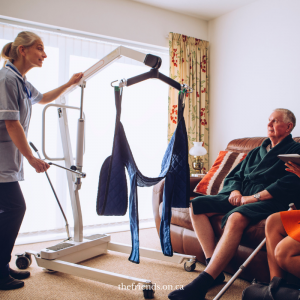
Personal Care at Home (3 min read)
There may be a time when you, or a loved one will need or want Personal Care services delivered in your home. Care delivered in the home is usually in response to a health situation and often results from referral by medical professionals. Given the choice, people want to be in their homes. This type of care is designed to support a person continuing to live independently in a safe environment and lessen the impact on the family.
What Should You Expect from care delivered in your home?
This for many people is a new experience. Both for the family and the person receiving care. So it’s important to understand what to expect when working with an agency that is providing care in your home. Here are some basic guidelines on what to expect:
- Understanding your needs and clarity of services: A Care Plan outlining the services you will receive is prepared with you. You should have a copy of your care plan and contact information, should you need to connect with a care provider. Needs may change from time to time and when this arises, you can expect to connect with your care coordinator to review and reassess.
- Your healthcare provider is not your housekeeper: This is the area where defining care and expectations is very important. Housekeeping services are provided in some cases in order to ensure personal safety – ie vacuuming, dishes, laundry, changing bed linen, bathroom clean up, and meal prep. Personal care in the home is not designed to provide the kind of comprehensive cleaning that a professional cleaning company would provide. It is not the goal of a health service provider to move your couch, clean windows, or do other heavy cleaning.
- Your care provider is there for YOU and YOU only: Your care provider should not be asked to do laundry or prepare meals etc for other members of the household. Similarly, please be considerate of your care provider when it comes to pets. You should not expect a care provider to walk your dog, empty cat litter, or feed your pets. Additionally, if your pet is not comfortable with others in the house, it should be in a cage or in a room with the door closed. You alone are the focus of care, not others who may either live with you or visit with you.
- Expect prompt communication: You should always be informed when a service is cancelled or unduly delayed. It could be as simple as dangerous driving conditions, or it may be that a client scheduled before you was ill and needed extra care delaying your service. Regardless, your care provider should be informing you of any issue. If you are experiencing constant delays (ie over an hour beyond your scheduled service time) make sure you speak to the supervisor and express your concerns. Help can’t happen if we don’t know there’s a problem.
- Compassion goes both ways: Changes in service can be upsetting or annoying once you have fallen into a routine. But the course of personal care doesn’t always run smooth. You may have had to wait last week while your care provider managed a crisis with another client, but this week, it could be your needs holding them up. Compassion and flexibility are part of the ‘Golden Rule’.
- Expect to be heard: Your personal care is important. You should have access to a supervisor to discuss any care issues that arise, and know that you can confidently and confidentially reach out.
Take good care!
